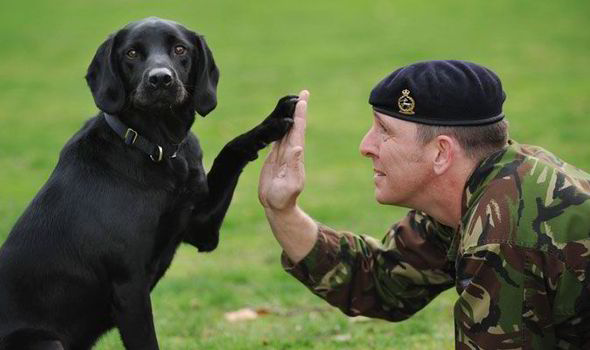On Animals, Part I: A Conversation with Barbara J. King and Jessica Pierce
To those interested in the ethical and philosophical issues surrounding our attachment to—and fascination with—our companion species, Barbara J. King and Jessica Pierce need no introduction. From her initial anthropological observations of wild monkeys in Kenya and the plight of captive apes to her pathbreaking work on animal emotion and cognition, King has become one of our most trusted commentators on the lives of animals (Just this week, the research that informed her most recent book How Animals Grieve was cited by television’s Cesar Millan, better known as “the Dog Whisperer.”). Pierce, author of The Last Walk: Reflections on Our Pets at the End of Their Lives and coauthor (with Marc Bekoff) of Wild Justice: The Moral Lives of Animals, has spent the past two decades writing at the intersection of bioethics and human-animal interaction, defining the field of environmental bioethics along the way. Both writers are at work on new books (more on that tomorrow), so naturally, we thought to put them in conversation about the issues and personal stakes surrounding the work they do—the resulting dialogue is both touching and elucidating, and we’ll be running it on the blog for the rest of this week: stay tuned.
***
UCP: Barbara, while your next book is about eating (and/or not eating) animals, Jessica’s questions the very premise of pet ownership, asking whether we really are good for our pets. Both books should generate some controversy, in part because both seem likely to hit people powerfully in parts of their lives where emotion tends to trump rationality. I’m curious about whether Jessica’s previous book, The Last Walk, had that effect on you, as a pet owner (and animal rescuer)—does the scientist fight with the individual pet lover in a situation where the fate of your pet may be at stake?
KING: These days, there’s really no conflict between my science-y self and my animal-lover self. I’ve always felt a deep interest in, and emotional connection to, animals as individuals who express distinctive personalities as they go about their everyday lives. And happily, the study of animal behavior nowadays embraces this approach. I don’t mean that we scientists now project human emotions uncritically onto animals, but rather, we realize we aren’t the only emotional beings in the equation: we are feeling, thinking creatures observing and trying to tune into the behavior of other feeling, thinking creatures, ranging in my case from the wild baboons I studied in Kenya to the domestic or feral cats I now rescue, live with, and, when the time comes at the very end of life, help to die a good death.
And it was precisely in this framework that Jessica’s The Last Walk grabbed me and moved me so much. Jessica’s choice to place at the center of the book’s narrative her aging dog, Ody, and her emotions about Ody’s impending death and her desire to ensure it be a good death,was, for me, perfect, and complemented by hugely helpful material from science and medicine about how we may best approach our pets’ last years. The result in the book was a tangle of emotion and reason that mirrors what we feel in real life for our pets: not a tangle as in a fight, or a confusion, but a tangle as in a connected web that emerges naturally and with beautiful honesty.
Jessica, I’m intrigued by your book-in-progress. In recent years, I’ve been keenly participating in efforts to really see and stop what we do to wild animals like elephants and dolphins when we keep them captive, using them (in zoos and marine theme parks for example) for our own entertainment. But our pets are domesticated animals, not wild ones—or should be, as wild animals don’t make good pets. I don’t think them of them being “held captive” for selfish reasons. How are you, though, thinking about this issue?
PIERCE: I feel like I’ve undergone several (many!) shifts in perspective as I’ve researched the book on pet-keeping, partly depending on whether I’m working on a section about the beauty of the human-animal bond or a section about the widespread abuse pet animals. When I started thinking about this book (originally entitled Confessions of a Reformed Pet Addict), I had an inkling that pet keeping had some dark sides and I wasn’t entirely comfortable with it—despite being an active consumer of pets as my daughter was growing up. (I subscribed to the “children learn important things from animals” school of thought.) I would say that overall, the more I’ve read and thought about it, the more uncomfortable I’ve become and I’ve largely concluded that the whole pet-keeping enterprise is a very, very bad deal for the animals, despite how pleasing we humans might find it.
Usually the question “which animals make the best pets?” means something like this: Which animal will entertain me (or my child) the best? Which animal will be inexpensive and easy to care for? Which animal is least likely to bite my child’s finger off? I am asking the same question, from a different point of view. Which kinds of animals can be held captive by humans without causing undue physical harm or emotional suffering? Which animals can we confine without too heavy a moral cost?
One thing is clear to me—and you’ve already suggested it in your first email: Some animals make more appropriate companions than others, and wild animals in particular do not make good pets. Also on my list of “not so good pets” are birds and reptiles, and on the “morally problematic but perhaps acceptable” list are small rodents like rats and hamsters, rabbits, fish, and cats. Dogs are the only animal on my “conditionally acceptable” list.
Join us tomorrow for more of this conversation—
And, in the meantime, read more about the work of King and Pierce, click here and here.
